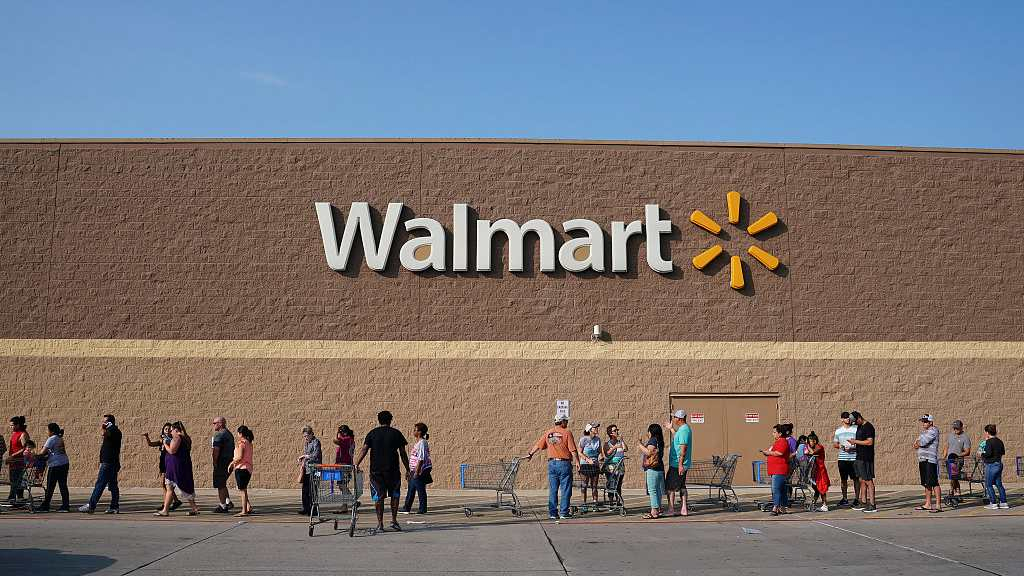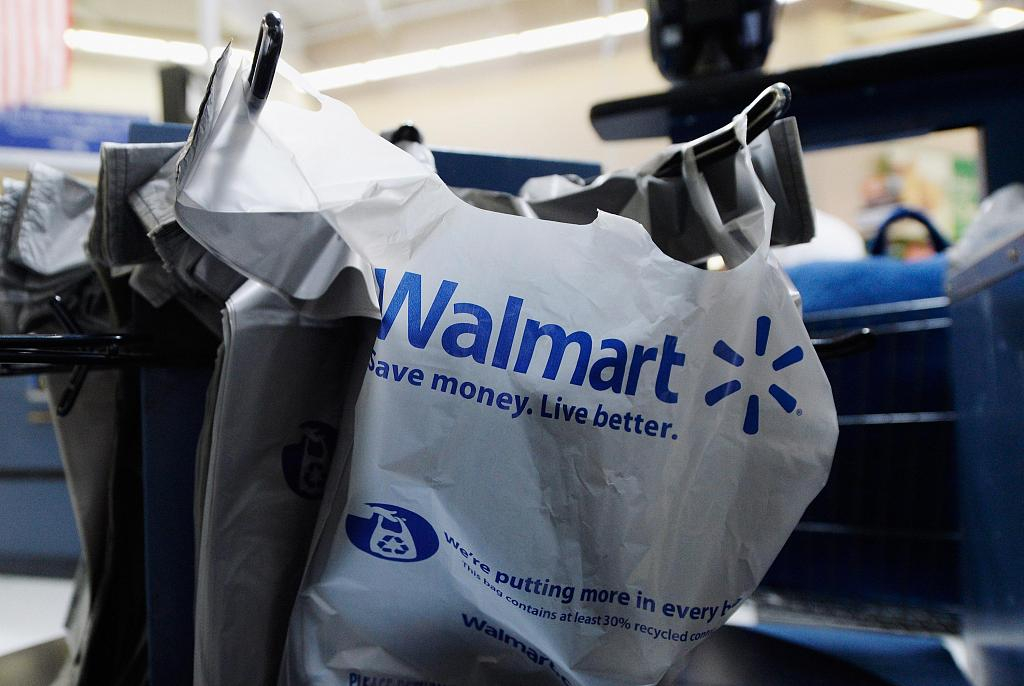
Economy
08:21, 17-May-2019
Walmart says higher China tariffs will increase prices for U.S. shoppers
CGTN

Walmart Inc said on Thursday that prices for shoppers will rise due to higher tariffs on goods from China as the world's largest retailer reported its best comparable sales growth for the first quarter in nine years.
Bentonville, Ark. based-Walmart called out the impact of tariffs on consumers after Macy's Inc delivered a similar warning on Wednesday. The department store chain's Chief Executive Jeff Gennette said tariffs on Chinese imports are hitting its furniture business and warned investors that additional levies would leave its clothing and accessory categories vulnerable.
U.S. President Donald Trump increased tariffs on 200 billion U.S. dollars' worth of Chinese imports to 25 percent from 10 percent last week. The move is widely expected to raise prices on thousands of products including clothing, furniture and electronics. China retaliated on Monday, though on a smaller scale.
Walmart Chief Financial Officer Brett Biggs said in an interview that higher tariffs will result in increased prices for consumers. He said the company will seek to ease the pain, in part by trying to obtain products from different countries and working with suppliers' "costs structures to manage higher tariffs."

Walmart's low-price strategy could be undercut in part by Washington's tariffs on China. /VCG Photo
Walmart's low-price strategy could be undercut in part by Washington's tariffs on China. /VCG Photo
Moody's analyst Charlie O'Shea said the potential impact on Walmart and its shoppers from tariffs is limited by its food business. Its grocery operation, which includes fresh food, contributes roughly 56 percent to overall revenue.
"We believe Walmart has the wherewithal both financially and via its vendor relationships to minimize the impact on both itself and its shopping base," he said.
Walmart U.S. Chief Executive Officer Greg Foran said on a conference call the company will maintain its "low-price leadership" and "manage costs on an item-by-item basis." But that position has been threatened, in part, by rising competition from discount chains like Aldi.
Also, Walmart's vendors have started to raise prices, among them Del Monte Foods, which supplies fresh and packaged goods to Walmart, including mandarin oranges imported from China. Prices will go up again with tariffs rising.
"It's not just tariffs. Transportation costs are up, labor costs are up. It's an inflationary environment," Del Monte CEO Greg Longstreet told Reuters on the sidelines of a conference. "A lot of that's going to have to be passed on. The consumer is going to have to pay more for a lot of critical goods."
Walmart shares, which have gained 7 percent so far this year, traded up 2.2 percent at 102.11 U.S. dollars in afternoon trade.
Investors and analysts expect U.S. spending to slow this year against a backdrop of rising debt, tariffs and economic uncertainty.
U.S. retail sales unexpectedly fell in April as households cut back on purchases of vehicles and a range of other goods, reflecting a slowdown in economic growth after a temporary boost from exports and inventories in the first quarter.
Source(s): Reuters

SITEMAP
Copyright © 2018 CGTN. Beijing ICP prepared NO.16065310-3
Copyright © 2018 CGTN. Beijing ICP prepared NO.16065310-3